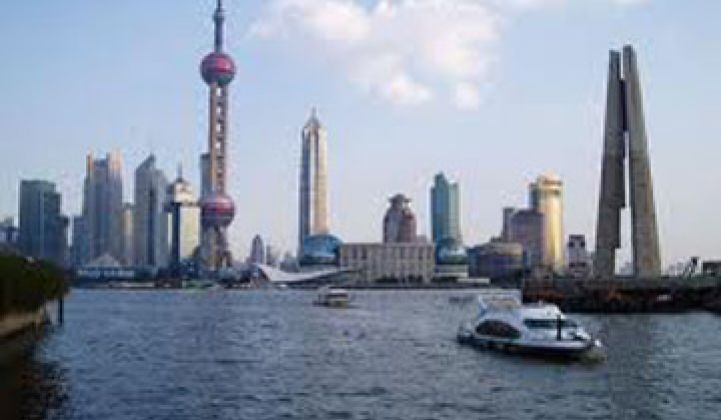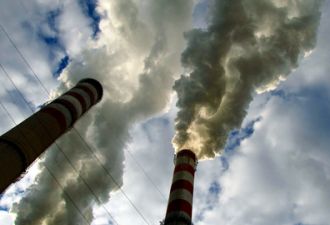San Francisco--Solar panels, wind turbines, electric cars: China seems to be a leader -- or at least a rising star -- in nearly every sector of green technology.
Except demand response.
"They [the state-owned utilities] have load management and load control, but demand response? The way we think about it, not yet," Mona Yew, director of the China Demand Side Management and Energy Efficiency Project at the National Resources Defense Council (abbreviated title: CDSMEEP o' NRDC), told me during a conversation at the Scaling Green Finance conference sponsored by the Asia Society in San Francisco today.
That could change quickly, and the shift, potentially, could benefit companies such as EnerNoc, Schneider Electric, Comverge and Constellation Energy (which bought CPower). Conceivably, these companies could parlay their learned experience into joint ventures with local entrepreneurs and/or utilities. Energy Services companies and building management experts might be able to squeeze in, too.
The opportunity for demand response and energy companies comes in part through a set of recent regulations that require Chinese utilities, which are state-owned entities, to their reduce energy sales volume by 0.3 percent a year through efficiency gains. It doesn't sound like a lot, but that much energy could power 1 million U.S. homes for a year (California public utilities are encourage to cut power by 1.5 percent a year.)
The figure also represents a minimum. More urban and industrialized provinces could set more ambitious goals and achieve higher savings. Since regional party leaders often land positions in the central government through exceeding goals on nationwide efforts like this, a number of bureaucrats may see this as a path to a substantial promotion.
To start saving power, some utilities have begun to form their own ESCOs to devise and execute efficiency strategies for local businesses.
Why would Chinese utilities, though, cooperate with U.S. or European energy specialists? Experience counts, said Julio Freidmann, the carbon management program leader at Lawrence Livermore National Labs. Energy projects and technology revolve around logistical and project management expertise. Duke Energy, after all, is eyeing projects in the U.S. and China by virtue of a relationship with ENN, a sprawling conglomerate that started as a car rental agency. First Solar, eSolar and Solar Reserve (a rising solar thermal company) have all managed to move into China the same way.
European and U.S. nuclear experts could see employment in China, too. China wants to build 80 gigawatts' worth of nuclear plants in the next decade, he said, and the country will need 13,000 more nuclear engineers than it currently has to achieve that goal.
Demand response networks don't require the same sort of gargantuan advanced planning efforts that a nuclear, or even a solar, plant might. But creating these networks remains an art -- and it's not so far-fetched that a Chinese company might reach out for a partner. Dynamic building management, similarly, is a relatively new field and most of the expertise in the field is concentrated in the West.



